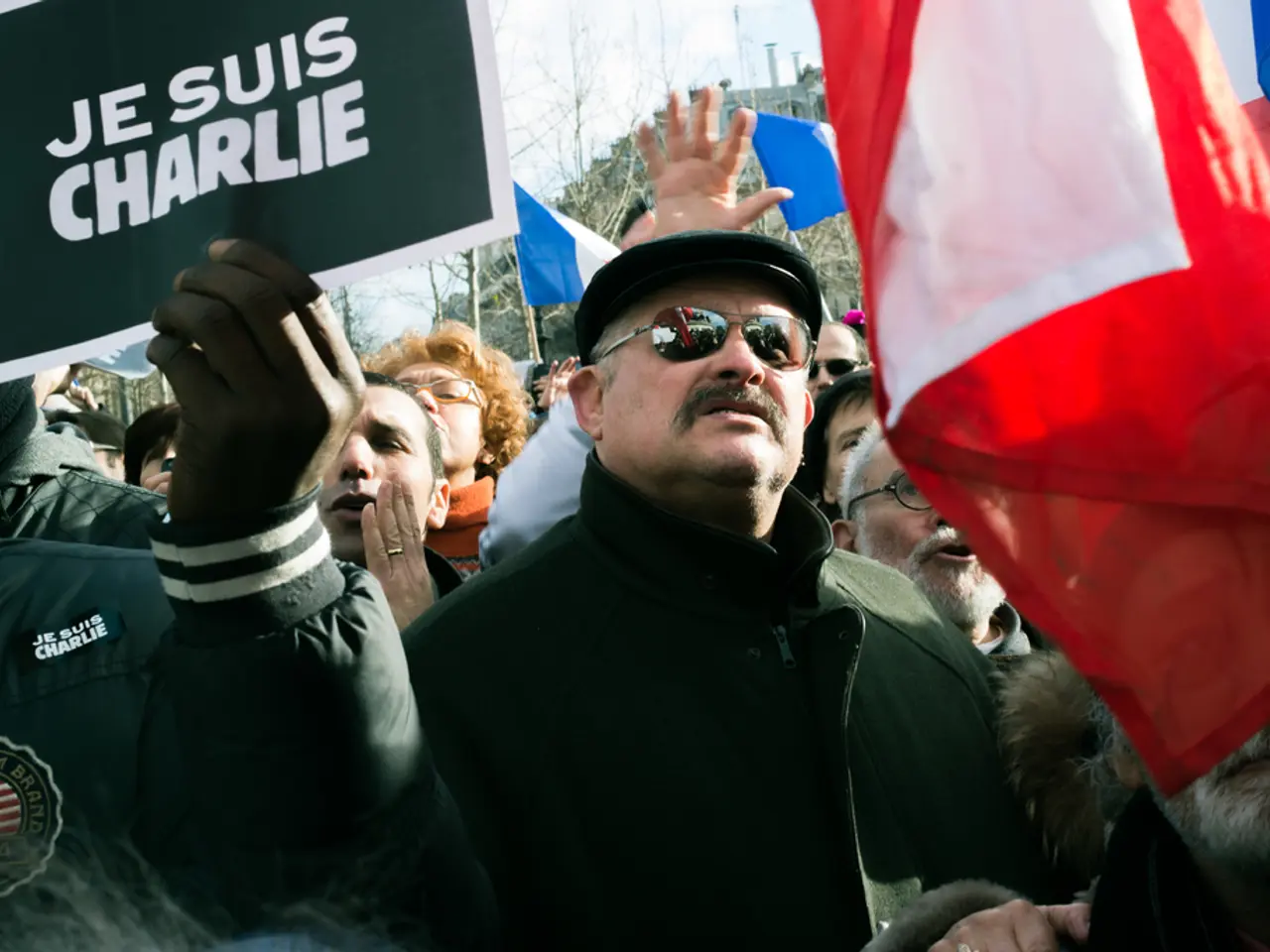Public tenders' racial quotas are set to rise to 30% under new government regulations
Title: Lula's Quota Decree: Boosting Representation in Brazil's Public Sector
Breaking News: President Luiz Inácio Lula da Silva signs a game-changing decree, outlining new racial quotas distribution in public contests. This ruling, published in the Union's Official Gazette, amplifies the federal law enacted earlier this month, escalating the reservation of seats in official selections to 30%.
📲 Stay Updated with O TEMPO's WhatsApp Channel
The decree paints a picture where 25% of the seats are reserved for Black and brown people, 3% for indigenous folks, and 2% for quilombolas. This applies to public contests and selections, including federal public administration organs, autarchies, public foundations, public companies, and mixed-economy companies controlled by the Union.
In scenarios with insufficient candidates from a group, the seats are redistributed among the others, following a priority order, until open competition. For example, if there are not enough quilombola candidates to fill the reserved seats, the remaining ones will be allocated to indigenous people, and so on. If there are not enough indigenous and quilombola candidates to fill the reserved seats, they will be allocated to Black and brown people, and ultimately, to open competition.
Candidates fitting into more than one reserve will be classified only in the one with the highest percentage. Candidates who register through quotas will also compete in open competition, and if they score high enough to be approved in open competition, they will not occupy the reserved seat.
Surprisingly, the decree does not address the reservation of seats for people with disabilities, which is already regulated by a specific norm with a quota of 5% of the offered seats.
In addition to the decree, the federal government also releases Joint Ordinance No. 261, orchestrated by the Ministry of Management and Innovation in Public Services, along with the ministries of Racial Equality and Indigenous Peoples, which defines application rules for seat reservation and provides guidance on classification in case of multiple quota hypotheses.
Confirmed Quota Status
To qualify for reserved seats, the individual must self-declare as Black, indigenous, or quilombola at registration time, in accordance with the criteria of race, color, and ethnicity used by the Brazilian Institute of Geography and Statistics (IBGE). In the case of a candidate who self-declares as Black, confirmation will be granted through a complementary confirmation procedure conducted by a five-member heterorecognition panel. Even candidates who earn a score for approval in open competition must undergo this evaluation if they've opted for the quota. In case of commission discrepancies, the candidate's self-declaration takes precedence.
Indigenous and quilombola individuals will have their self-declaration procedures validated by specific commissions with a majority of indigenous and quilombola members, respectively. Relevant documents may include identity cards, declarations signed by three members of the indigenous ethnicity, or three leaders of a quilombola community, along with certification from the Palmares Cultural Foundation. Various proofs, like school records, indigenous health documents, Cadastro Único de Programas Sociais (CadÚnico), and others, may also be required for registration validation.
Other Rules
Notices must ensure that quota candidates have access to all stages of the competition, provided they meet the minimum score. Furthermore, it is forbidden to divide vacancies among several notices, aiming to bypass the quota policy. Exceptions to this rule will be permitted only with substantial justification.
A committee will be established by the Ministry of Management and Innovation in Public Services to oversee the application of quotas and propose enhancements. After two years, the confirmation procedures may be reevaluated with civil society participation.
This move by President Lula is a significant step towards improving racial equity in Brazil's public sector, as part of progressive affirmative action measures taken over the past decade. Since little concrete information about the numeric breakdown or specific categories of the new quota system was available, it is clear that the decree focuses on enhancing and expanding existing affirmative action measures to combat historical inequalities faced by these groups and ensure greater inclusion in public sector jobs.
[1] Affirmative action efforts have led to a significant increase in the participation of Blacks and mixed-race people in top government jobs, rising from 25% in 2014 to 36% in 2024. (Brazil Agency)
- The decree, signed by President Lula da Silva, has implications for policy-and-legislation, as it pertains to the distribution of racial quotas in public contests and selections across various sectors of Brazil's public sector.
- This development in politics, aiming to boost representation, directly impacts general-news reporting, as it delves into the broader discussion of racial equity and affirmative action measures in Brazil's public sector.





